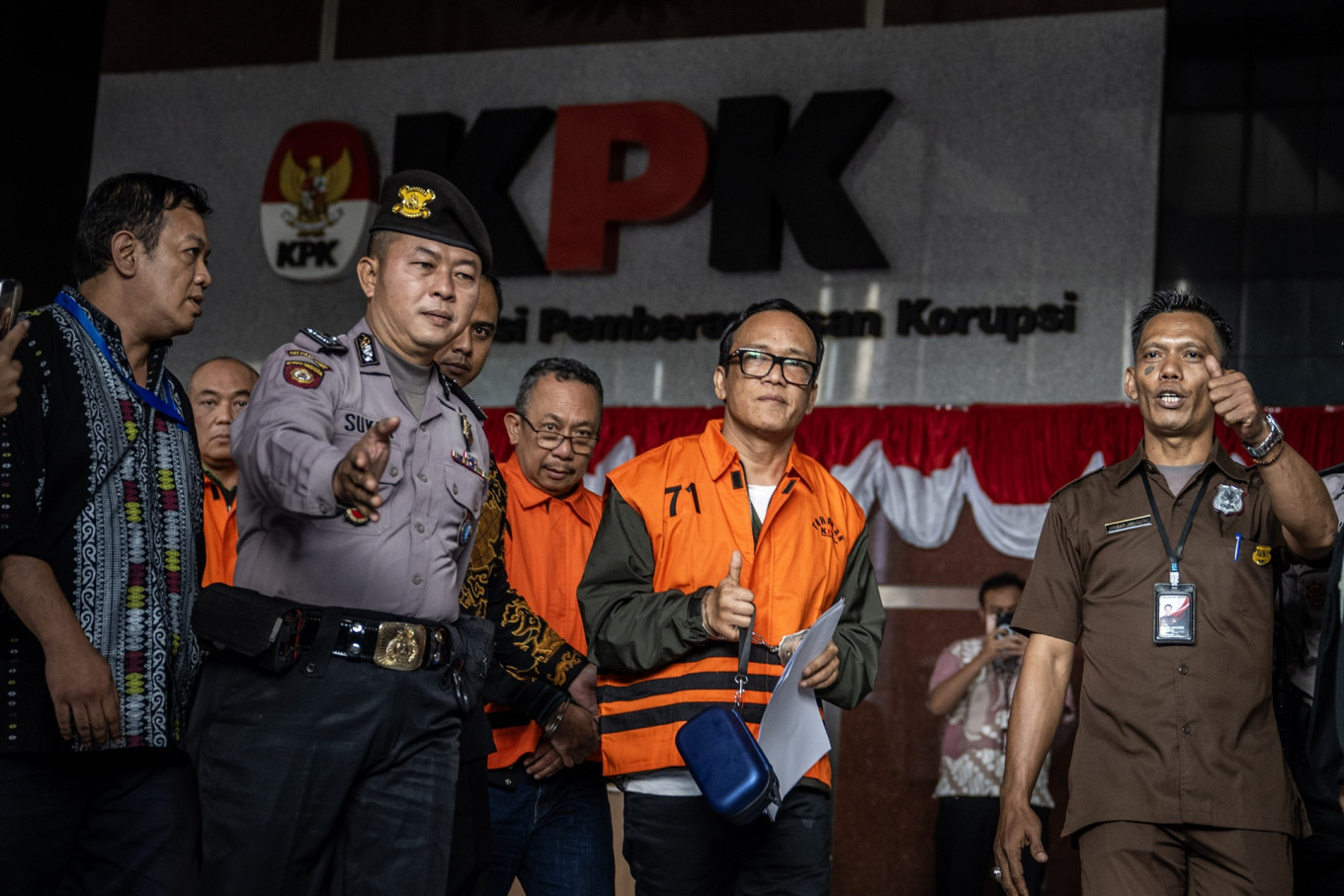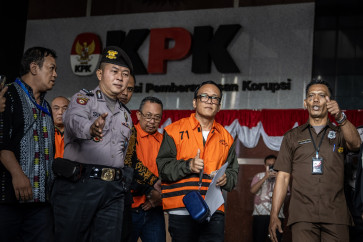Popular Reads
Top Results
Can't find what you're looking for?
View all search resultsPopular Reads
Top Results
Can't find what you're looking for?
View all search results'Serakahnomics' in action and corruption arrest politics
Noel's removal suggests a dual message: a warning to Prabowo’s own political circle, and a distancing move from his predecessor’s lingering influence.
Change text size
Gift Premium Articles
to Anyone
I
n the theater of Indonesian politics, outrage has long been a recurring act. But the arrest of dismissed deputy manpower minister Immanuel “Noel” Ebenezer Gerungan by the country’s anti-graft commission KPK is more than another headline in Jakarta’s scandal cycle.
It is a vivid snapshot of the opportunism, impunity and Machiavellian politics that define Indonesia’s bureaucracy, and an early test of President Prabowo Subianto’s commitment to eradicating corruption in the age of what he has christened serakahnomics (greed economics), the pursuit of profit at the expense of ordinary people.
That a man who in 2016 was a ride-hailing app driver could, within less than a decade, find himself in a deputy ministerial post, boasting a fleet of luxury vehicles and a multimillion-rupiah property portfolio, is not merely an anecdote of social mobility. It is a case study in political reward systems that continue to value loyalty over merit, proximity over principle and transactional alliances over democratic accountability. Noel’s path, from campaign volunteer in President Joko “Jokowi” Widodo’s camp to political turncoat backing Prabowo in 2024, is all-too-familiar.
But what makes this case more damning is the nature of the alleged crime. KPK suspects Noel of extorting bribes from companies seeking occupational safety permits. Indonesia’s notoriously sluggish and opaque permitting process has long deterred investment.
According to the World Bank’s now-discontinued Ease of Doing Business index, Indonesia ranked 73rd globally in 2020. Much of that ranking reflected precisely the type of bureaucratic rent-seeking Noel is now accused of.
Corruption in Indonesia is not new. The country placed 115th out of 180 countries in Transparency International’s 2023 Corruption Perceptions Index, a fall of 10 places from a decade earlier.
President Prabowo, to his credit, seems eager to brand himself as the man who will end this culture of impunity. In his first State of the Nation address, Prabowo cited some Rp 300 trillion (US$18.5 billion) in savings recovered from waste and inefficiency in the national budget, mostly in travel, administration and procurement costs.



















